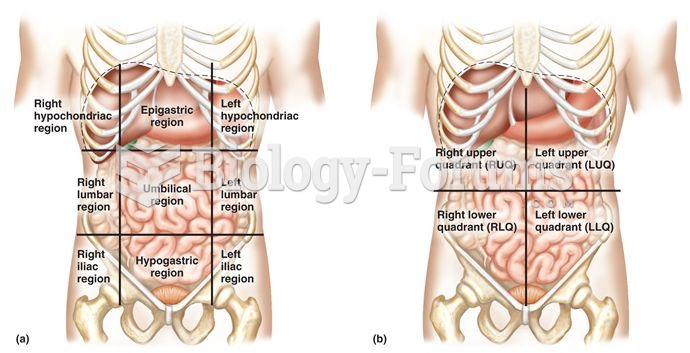This topic contains a solution. Click here to go to the answer
|
|
|
Did you know?
The most destructive flu epidemic of all times in recorded history occurred in 1918, with approximately 20 million deaths worldwide.
Did you know?
Between 1999 and 2012, American adults with high total cholesterol decreased from 18.3% to 12.9%
Did you know?
According to research, pregnant women tend to eat more if carrying a baby boy. Male fetuses may secrete a chemical that stimulates their mothers to step up her energy intake.
Did you know?
The familiar sounds of your heart are made by the heart's valves as they open and close.
Did you know?
People with high total cholesterol have about two times the risk for heart disease as people with ideal levels.







